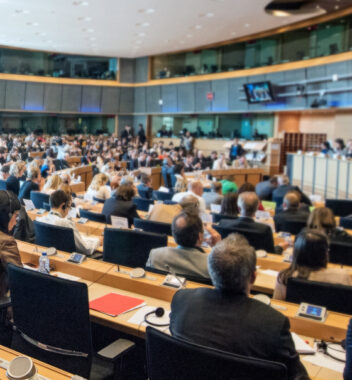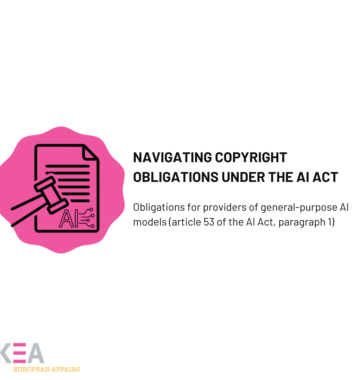
On 17 June, the European Parliament (EP) adopted a resolution on players’ agents in sports welcoming the results of the study conducted on this matter by KEA European Affairs for the European Commission (EC) and which provided for the first time an overview of the situation of sports agents in the European Union (EU).
In the resolution, the European Parliament expresses its concerns about some findings of the study with regard to “the inherent opacity of transfer systems (…) which are conducive to illegal activities where agents as well as clubs and players are involved”. In this context, the European Parliament applauds sport governing bodies’ efforts to bring about more transparency and supervision of financial flows, as acknowledged in KEA’s study.
The European Parliament further asks the Council of Ministers “to step up its coordinating efforts in the fight against criminal activities linked to agents’ activities, including money laundering, match fixing and human trafficking”. The European Parliament therefore underscores the finding of the study that the effectiveness of control and the enforcement of sanctions can only be tackled by joint efforts of sports governing bodies and public authorities.
Acknowledging the “confusing diversity of regulations applicable to the activities of sports agents” and the internationalisation of professional sport underlined in the study, the European Parliament further considers that a coherent EU-wide approach is needed to ensure proper monitoring and control of the agents’ activities and calls for an “EU initiative” that should aim, among other things, at a prohibition for remuneration to players’ agents related to the transfer of minors, and at the introduction of a European Union wide “agents’ licensing system” and agents’ register.
It remains to be seen whether and how this resolution will be accepted by the sport movement – especially by the four sports federations that have implemented a regulation on sports agents, among which the Fédération Internationale de Football Association (FIFA) – and by the few EU Member States who have also put in place a specific regulation, like France.
The ball is now in the hands of EU Commissioner responsible for Sports, Mrs Androulla Vassiliou, whose services are expected to publish a Communication on the future sports policy in November which should address inter alia the issue of sports agents. During the plenary debate preceding the vote, Mrs Vassiliou said she was fully aware of the “political importance” of this issue, adding that “there is no doubt that some EU action is desirable”. She suggested that the EU could play a coordinating role and help to ensure a harmonised approach to the issue of agents, for example by using the EU’s new competences on the harmonisation of criminal law.































